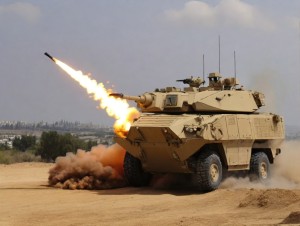British defense procurement minister James Cartlidge shed light on the United Kingdom’s ongoing struggle to fully embrace artificial intelligence (AI) within its defense systems, despite the growing global momentum towards leveraging AI in modern warfare.
During a recent defense committee hearing, Cartlidge delivered a critical assessment of the UK’s AI preparedness, emphasizing significant gaps in the country’s ability to fully adopt AI across all aspects of the Ministry of Defence (MoD).
UK military struggles with AI integration amid global progress
Despite notable strides in integrating AI into certain areas of the UK military, there remain significant gaps in its overall adoption within defense systems, as highlighted by Cartlidge.
While progress has been commendable, the UK has not yet reached the pinnacle of AI preparedness across all facets of the Ministry of Defence (MoD). Cartlidge stressed the imperative for further advancements to bridge these gaps, underscoring the need to accelerate the rate of progress to achieve complete satisfaction with the current state of affairs.
Moreover, amidst these challenges, there are promising signs of progress towards AI integration within the UK military. For instance, AI technologies have been leveraged to support various defense initiatives, including developing drones for deployment in Ukraine.
Additionally, a recent unveiling of new AI software at a Royal Naval Air Station exemplifies the military’s commitment to harnessing AI for enhanced operational efficiency. This software facilitates the rapid processing of aircraft maintenance data, enabling timely detection and resolution of engineering issues.
These advancements signify a proactive approach to leveraging AI within the UK military, albeit against a backdrop of ongoing challenges in achieving comprehensive AI readiness.
AI applications in military operations
The integration of artificial intelligence (AI) into military operations represents a significant advancement in modern warfare strategies. AI offers a plethora of advantages, ranging from enhanced intelligence gathering to precise target detection and rapid data analysis capabilities. James Cartlidge, the British defense procurement minister, emphasizes these benefits, noting that by leveraging AI, defense assets can operate with heightened precision, efficiency, and safety.
In practical terms, AI-powered systems enable military personnel to sift through vast amounts of data more efficiently than conventional methods, thereby enhancing situational awareness and decision-making capabilities on the battlefield.
AI algorithms can analyze complex patterns in data to identify potential threats, streamline logistics, and optimize resource allocation, leading to more effective mission outcomes.
AI-driven technologies such as unmanned aerial vehicles (UAVs) or drones equipped with AI-enabled capabilities play a pivotal role in reconnaissance missions, providing real-time intelligence and surveillance in hostile environments.
These AI-enhanced UAVs can autonomously navigate terrain, identify targets, and relay critical information to military commanders, facilitating timely and informed decision-making.
Global trends in AI adoption
James Cartlidge’s assessment of the UK’s AI readiness aligns with a broader global trend of increased investment and adoption of AI technologies in military contexts. Nations around the world are recognizing the transformative potential of AI in addressing evolving threats and enhancing defense capabilities.
For instance, reports of Russia’s utilization of generative AI for sophisticated cyberattacks highlight the evolving nature of modern warfare, where AI-driven techniques are employed to exploit vulnerabilities in digital infrastructure and disrupt adversary operations.
Similarly, China’s claims of developing AI-enabled technologies for jamming and espionage activities underscore the competitive landscape shaping global military strategies.
In response to these emerging challenges, governments and defense agencies are allocating substantial resources to AI research and development initiatives. From autonomous weapons systems to AI-powered cybersecurity measures, the integration of AI into military operations has become a priority for ensuring national security and maintaining strategic advantage in an increasingly complex geopolitical landscape.
The convergence of AI technologies with military applications represents a paradigm shift in modern warfare, with profound implications for defense strategies, tactics, and international security dynamics.
As nations continue to invest in AI to bolster their military capabilities, the need for robust governance frameworks and ethical considerations surrounding AI deployment becomes increasingly paramount to mitigate risks and safeguard global stability.





